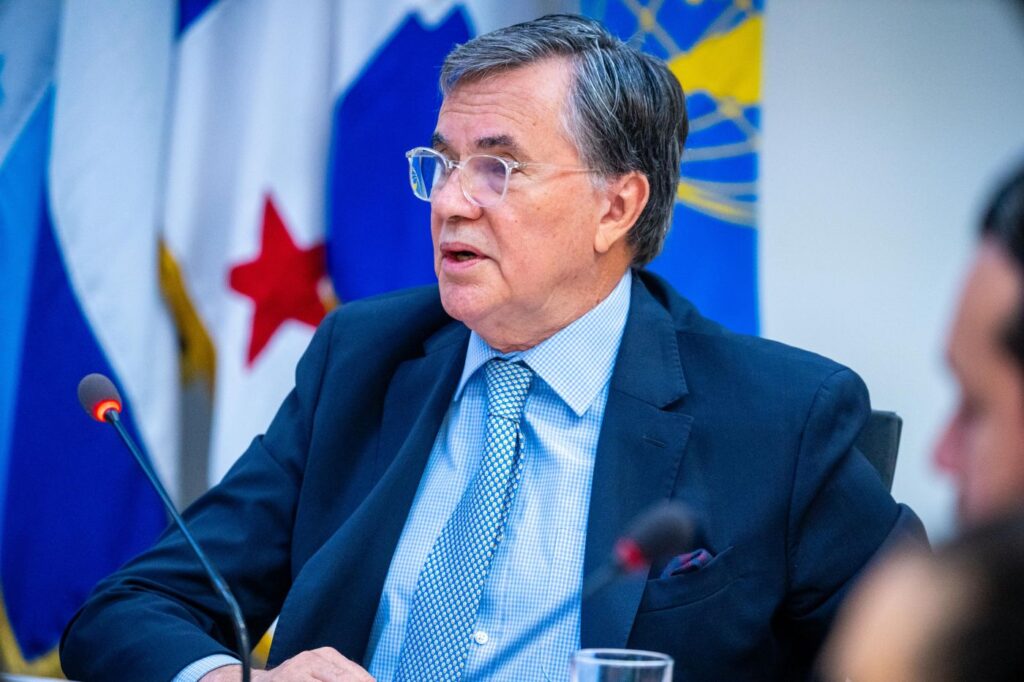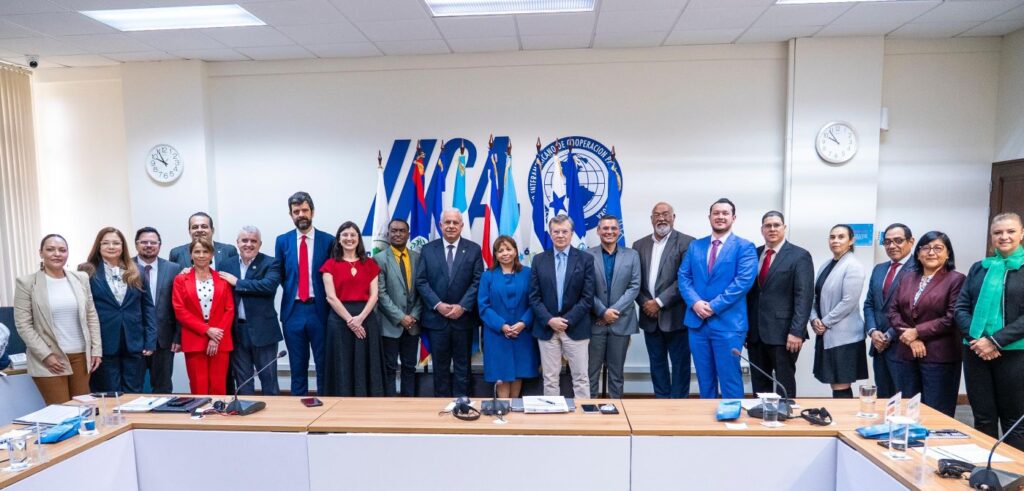
San Jose, 24 February 2025 (IICA) – The Inter-American Institute for Cooperation on Agriculture (IICA) will make a significant investment in Central America to deepen and strengthen actions to prevent, control and eradicate the New World screwworm under the One Health approach, announced Manuel Otero, Director General of the Institute.
“This endemic disease is present throughout the continent and requires greater investment, surveillance and training, as well as a solid institutional framework. This powerful enemy affects the quality of life of livestock farmers and threatens our exports”, said Otero when addressing the ministers and senior agricultural officials participating in a meeting of the Central American Agricultural Council (CAC), a body of the Central American Integration System (SICA), held in San Jose, Costa Rica.
New World screwworm (Cochliomya hominivoax) is a disease that primarily affects cattle, but may affect other domestic and wild species, including human beings, impacting public health and generating losses in terms of productivity and competitiveness.
The New Worlds screwworm (NWS) had been eradicated from Central America in the early 2000s. However, cases were reported in Panama and Costa Rica in 2023, and in Nicaragua and Honduras in 2024. Therefore, countries have been undertaking actions to improve prevention, control and eradication.
The IICA Director General announced that the hemispheric agency will allocate USD 250,000 to a strategy to combat the disease in 2025.
IICA’s goal is to swiftly and effectively allocate these funds to efforts aimed at strengthening communication, awareness-raising and health education campaigns, as well as those aimed at improving notification, reporting of cases and the purchase of sampling kits and authorized healing products to guarantee a more effective response in the region.
As part of its steadfast commitment to combating pests and diseases that affect agrifood production, IICA has been implementing a capacity-building project in risk management and communication to prevent, control and eradicate NWS in Central America and Mexico.
The initiative is being carried out in collaboration with the Animal and Plant Health Inspection Service (APHIS) of the United States Department of Agriculture (USDA) and is aimed at improving knowledge and understanding of the disease.
During the CAC meeting, Otero noted that IICA’s actions in this topic in 2024 benefited approximately 60 thousand people involved in agricultural production in Central America and Mexico, including members of indigenous communities.
“We want to show countries that we are on their side. We are seeking to eradicate this troubling disease”, said Otero.
“You can count on IICA, which is always eager to help and understands that we will only be able to overcome these types of issues and foster the development of agriculture and rural areas by means of a regional strategy. We are fully committed to integration; when facing such profound crises, the only solution is to become more united”.
Participants
Participating in the CAC meeting at IICA Headquarters were Roberto Linares, Minister of Agricultural Development of Panama; Laura Suazo, Secretary of Agriculture and Livestock of Honduras; Darío Vargas, Deputy Minister of Agriculture of the Dominican Republic; Fernando Vargas, Deputy Minister of Agriculture and Livestock of Costa Rica; Jeovani Alvarez, Secretary General of the Ministry of Agriculture of Nicaragua; Victoriano Pascual, representative of the Minister of Belize; and Jaime Figueroa, representative of the Minister of El Salvador.
Also in attendance were Lucrecia Rodríguez, Executive Secretary of CAC; Lloyd Day, Deputy Director General of IICA; Marco Zapata, IICA Chief of Staff; and Erick Quirós, IICA Representative in El Salvador and Special Affairs Coordinator for the Central Region.
During the meeting, Priscila Rech Moser, the new Agricultural Attaché of the Embassy of Brazil in Costa Rica, was introduced to the Central American ministers and high-level authorities. Her appointment demonstrates the great geopolitical importance of Central America for Brazil and countries in the Southern Region. “You will be seeing a lot of her at IICA meetings and during visits to Central American countries, which is yet another sign of the willingness to build bridges between Brazil and the Central American region”, remarked Otero.
The meeting participants also discussed the implications of the European Union Deforestation Regulation 1115—whose entry into force has been postponed—for the region; presented projects related to the participation of women and youth in family farming in value chains; and discussed the roadmap for Central American agriculture ahead of the United Nations Climate Change Conference (COP30), which will be held in November in Brazil.












